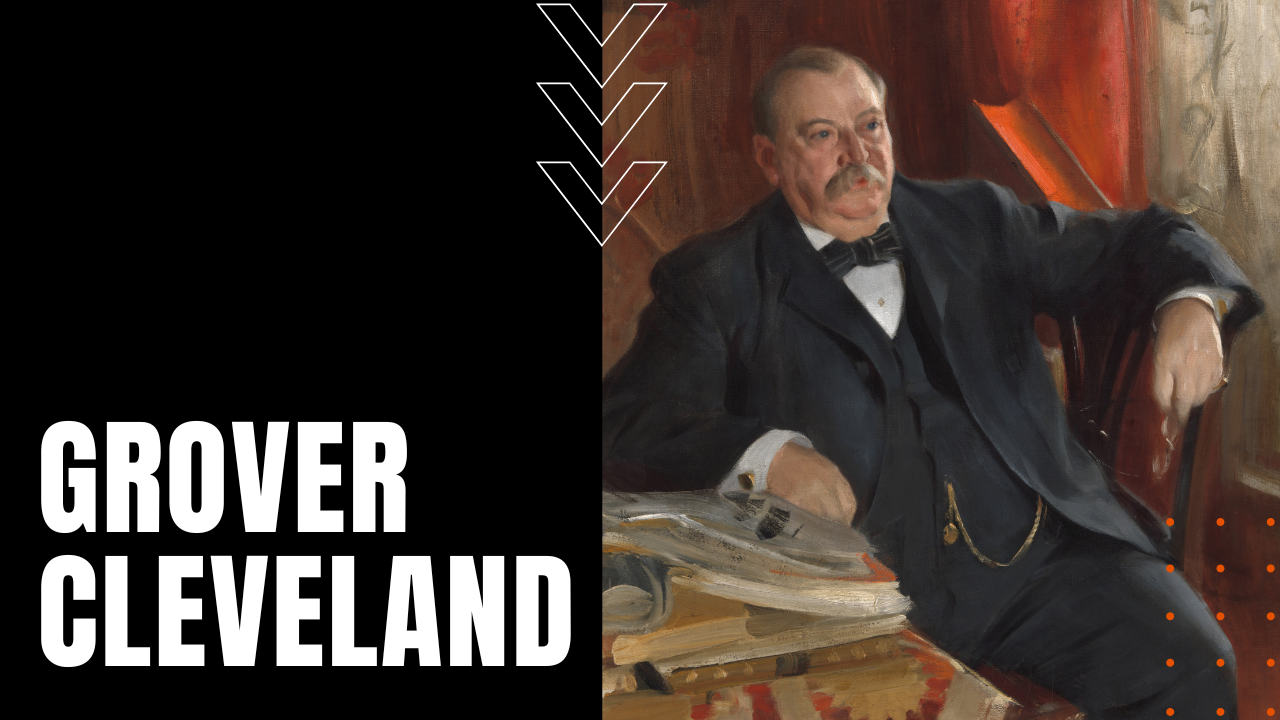Grover Cleveland

Born in 1837 Caldwell New Jersey, Grover Cleveland dropped out of school at 16 after his father died in 1853, working as a teacher for the New York Institute for the Blind to help support his eight brothers and sisters. Passing the New York bar exam in 1859—without attending law school—Cleveland opened his own law firm in 1862, avoiding conscription into the Civil War by paying a Polish immigrant to serve in his place.
Elected Sheriff
Elected sheriff of Erie County New York in 1871, a decade later he became mayor of Buffalo New York in 1882, followed by his election as New York State governor in 1883 due to his growing reputation as an anti-corruption politician, which soon put him at odds with the powerful Tammany Hall political machine in New York City.
Rocked by Paternity Scandal
Despite a paternity scandal where he admittedly paid child support to a woman who claimed he was the father of her child, Cleveland won the White House in 1884 with the support of crossover Republican “Mugwumps,” Cleveland based his political appointments on merit rather than party affiliation, using his presidential veto power 414 times during his first term—more times than all preceding U.S. presidents combined—in an attempt to curb government spending at the federal level.
Marries a Much Younger Woman
Marrying 21-year-old Frances Folsom at a White House ceremony in 1886—27 years his junior and the youngest first lady in U.S. history—Cleveland lost his bid for a second term to Republican Benjamin Harrison, largely due to Cleveland’s persistent fight to lower or eliminate protective tariffs on foreign imports.
Wins White House
Winning the Democratic presidential nomination and later the White House in 1892—the only U.S. president to serve two non-consecutive terms—despite his reputation as a political reformer, his lackluster and almost bewildered response to the Panic of 1893 angered his original supporters, when the U.S. economy was crippled by a string of railroad and bank failures, a stock market crash, transportation strikes, a nationwide credit crisis and skyrocketing unemployment that peaked at 19 percent.
Declines Third Term
Declining to run for a third term, Cleveland retired to his estate in Princeton New Jersey, serving as a trustee of Princeton University until his death by heart attack on June 24th, 1908, where he uttered on his deathbed, “I have tried so hard to do right,” making the life and achievements of Grover Cleveland, a guiding influence in late 19th century American politics.
